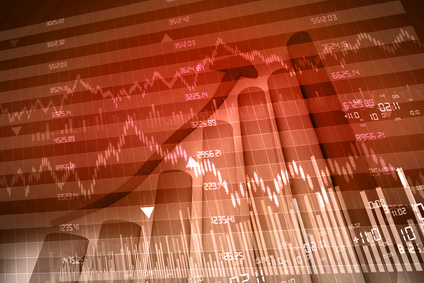Business
Greece Again In The Spotlight

Many eyes have turned to Greece after the stress test, where some of its banks failed the exams and even was talk if it would be necessary a new bailout to avoid the country’s economy collapse.
Today we have obtained new data, this time related to the Consumer Price Index that has fallen again after 20 months of decline to stand now at 1.7 % in October, after the previous drop of 0.8 % lived in September.
And it seems that Greece is today in global headlines and something that all observers of the area are analyzing. JP Morgan, Versus Wealth Management or Black Rock have their eyes on the next steps of the eurozone on this country since it has been buzzing about a possible way out of the European economic plan.

But it seems that this can not happen, that there’s no going back to a country that, since 2010, has already received two bailouts totaling 240,000 million Euros from both the European Union and the International Monetary Fund.
The market rumours, once assumed that the going back from the programmes is not possible, is that it will be necessary to find a new formula with measurements that help the economic policies of this country.
At first, what the country was looking for was a getaway without the need of a new bailout, as happened in countries like Ireland or Portugal, but the truth is that this idea from the Samaras government didn’t got the improvement needed in markets, having to backtrack not to worsen the situation facing Greece to the European Union and investors
Meanwhile, we will have to wait for the 8th of December, when a new meeting is expected for the European Union itself to raise the ransom, the third, and with the need to ratificate it even before Christmas to try to close the year partly saving the current situation and the uncertainty hanging over of the country and also on various international stages .
But before December arrives, the European commissioners have been valorating the countries situations to design the new policies for 2015 through its budget plans to avoid situations that bother the economy back from the eurozone and, by extension , including the assessment of the single currency in markets.
-

 Tech11 years ago
Tech11 years agoCreating An e-Commerce Website
-

 Tech11 years ago
Tech11 years agoDesign Template Guidelines For Mobile Apps
-

 Business6 years ago
Business6 years agoWhat Is AdsSupply? A Comprehensive Review
-

 Business10 years ago
Business10 years agoThe Key Types Of Brochure Printing Services
-

 Tech8 years ago
Tech8 years agoWhen To Send Your Bulk Messages?
-

 Tech5 years ago
Tech5 years ago5 Link Building Strategies You Can Apply For Local SEO
-

 Law5 years ago
Law5 years agoHow Can A Divorce Lawyer Help You Get Through Divorce?
-

 Home Improvement6 years ago
Home Improvement6 years agoHоw tо Kеер Antѕ Out оf Yоur Kitсhеn











































